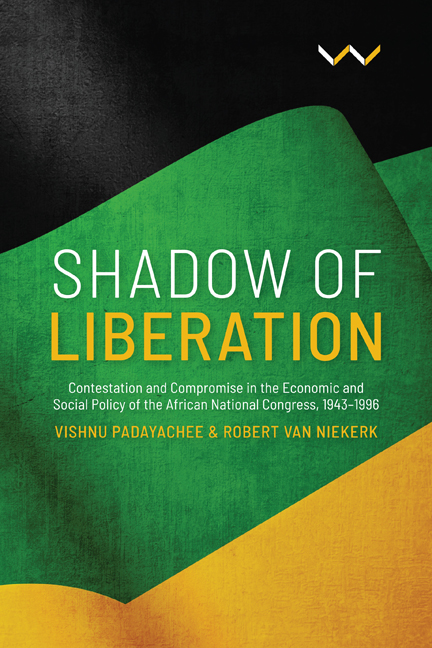 Shadow of Liberation
Shadow of Liberation Published online by Cambridge University Press: 20 January 2022
Talks about the transition to democracy in South Africa began fitfully and largely in secret in the mid-1980s. But President FW de Klerk's announcement on 2 February 1990 that the apartheid regime was unbanning the African National Congress (ANC) and other liberation movements, and the release of Nelson Mandela nine days later, took the transition onto a much higher plane and at a rapid rate. That South Africa remained the only fully capitalist economy on the continent at that time is not in doubt. While we do not subscribe to the notion of ‘South African exceptionalism’, we maintain that its capitalism was an extreme, stunted and distorted one. All of these characteristics, in different ways, had a bearing on the very nature of the transition, including on economic and social policy options and choices. Two such features are worth noting here. Firstly, South African capital represented by white-owned conglomerates such as Anglo American Corporation and Sanlam, both established around the end of the Second World War, remained powerful, globally connected and influential as the twentieth century wound to a close. Secondly, the apartheid regime's economic institutions remained well-resourced and internationally connected, despite decades of sanctions and the crisis of the apartheid state. These state institutions included the Ministry of Finance, the South African Reserve Bank, the Central Economic Advisory Services, a number of regional, national and provincial development finance institutions, and the national statistics agency (Central Statistical Services).
The real power among the constituencies engaged in negotiations lay in the hands of white business and in the institutions of the late apartheid state, as journalist and author Martin Plaut argues: ‘The men who had run South Africa for decades also embarked on a process designed to incorporate senior members of the ANC. Radical economic policies were dropped in favour of more conventional macro-economic prescriptions’ (2012: 31). As Plaut suggests, this was no accident; it had been thought through by the old regime and it was to prove decisive in many economic policy battles, including, as we show, the crucial issue of the independence of the South African Reserve Bank (see chapter 6).
To save this book to your Kindle, first ensure no-reply@cambridge.org is added to your Approved Personal Document E-mail List under your Personal Document Settings on the Manage Your Content and Devices page of your Amazon account. Then enter the ‘name’ part of your Kindle email address below. Find out more about saving to your Kindle.
Note you can select to save to either the @free.kindle.com or @kindle.com variations. ‘@free.kindle.com’ emails are free but can only be saved to your device when it is connected to wi-fi. ‘@kindle.com’ emails can be delivered even when you are not connected to wi-fi, but note that service fees apply.
Find out more about the Kindle Personal Document Service.
To save content items to your account, please confirm that you agree to abide by our usage policies. If this is the first time you use this feature, you will be asked to authorise Cambridge Core to connect with your account. Find out more about saving content to Dropbox.
To save content items to your account, please confirm that you agree to abide by our usage policies. If this is the first time you use this feature, you will be asked to authorise Cambridge Core to connect with your account. Find out more about saving content to Google Drive.